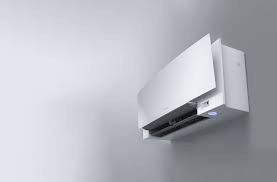If you suffer from allergies, you may be wondering if air conditioning helps with allergies? While allergy symptoms can be minor inconveniences, they can also be life-threatening for some. Symptoms of allergies can include a severe asthma attack, trouble breathing, watery eyes, and inflammation. Other side effects include irritation, redness, and burning sensation. Some of these effects are easily treatable with over-the-counter medicines. For severe allergies, medical care is needed.
Some of the common causes of allergies are pollen and indoor dust. Pollen often enters a home through open doors and windows, where it can be tracked indoors. As a result, it becomes embedded in carpeting and furniture, contributing to the onset of seasonal allergies. While air conditioning can help reduce indoor allergens, allergies can also be triggered by other allergens. Allergies are caused by a combination of indoor dust and pet dander, so air conditioning can make them worse in a domestic setting.
Allergies can also be caused by dust mites. These particles are difficult to remove, since they are larger and settle faster than smaller ones. The solution is to clean the air inside your home. This can be done with regular maintenance of your air conditioner and the surrounding area. The air conditioner will provide you with a healthier, cleaner environment, and will reduce the severity of your allergy symptoms. While this might seem counterintuitive, it may be worth a try. For more details on Air con Gloucester, visit Ace Comfort Cooling, a leading Air con Gloucester supplier.
The symptoms of an allergy attack include sneezing, watery eyes, runny nose, ear congestion, and fatigue. Changing air filters regularly can dramatically improve the indoor air quality in your home. To make sure your air conditioner is working optimally, replace the filter monthly. It should also be maintained regularly to ensure a clean, fresh air supply.
Another way to keep dust and allergens at bay is to vacuum your home regularly. While dust and other allergens accumulate on carpets and furniture, vacuuming regularly can help reduce the amount of allergens in the air filter. Additionally, dust can accumulate on appliances, countertops, and other surfaces.
Indoor air quality can be the number one cause of allergy symptoms in the world. Air conditioners help control the humidity level in the home, reducing the risk of mould growth. Because air conditioners filter indoor air, they can help control indoor allergens like pollen, dust mites, and mould. These particles cause symptoms of allergy and other respiratory conditions. Air conditioners are an excellent solution for this problem. It will also help improve the air quality of your home or workplace.






